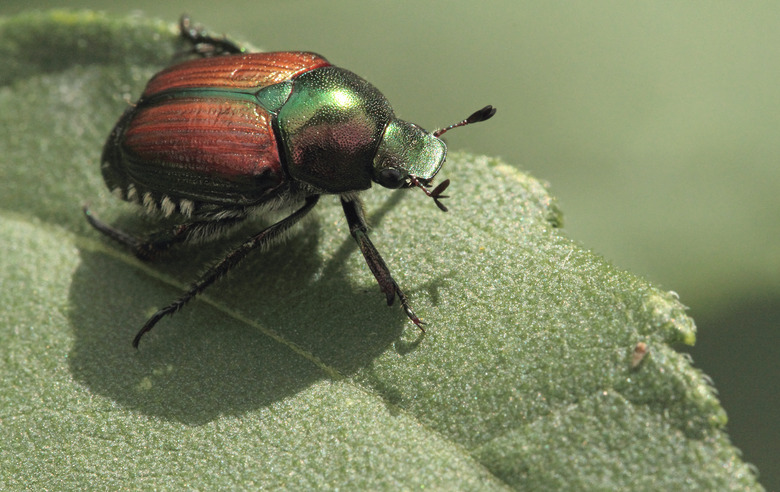How To Kill Night Beetles
We may receive a commission on purchases made from links.
You'll know spring has arrived when you start getting divebombed by night beetles while sitting on your porch. Although there is no such species as a "night beetle," the term refers to a number of different scarab beetle varieties that become a nuisance when attracted to outdoor lighting, including June bugs and Japanese beetles. Most of these beetles won't hurt you, but that doesn't change the fact that they can get caught in your hair, fly at your face, bounce into you, and generally be creepy. Getting rid of them is a multistep process that extends beyond this year and into the next.
Night Beetle Don'ts
Night Beetle Don'ts
If you're having trouble with nuisance beetles interrupting your time outdoors, resist the urge to buy a beetle trap. Commercially available traps work by luring beetles to them. Unfortunately, studies show that these traps attract far more beetles than they catch. Beetle traps essentially roll out the welcome mat for beetles and increase their numbers rather than diminishing them.
Try Natural Remedies
Try Natural Remedies
When solving pest problems, it's best to start with safe and natural remedies before bringing out the big guns. A safe way to deal with beetles is to attract birds to your yard. Birds love to snack on beetles. Landscape with plants that attract local bird species and provide birdhouses, a birdbath, and a bird feeder to lure more birds to your garden or lawn.
You can also reduce beetle populations by manually removing them. This is tricky if you're squeamish, but it's fairly easy to shake beetles off garden plants and onto a tarp or cloth where you can scoop them up and kill them by dropping them into soapy water. Planting chrysanthemums makes easy work of this task. Beetles love them, but the natural pesticide in them makes the beetles dizzy, so they fall off the plant where you can just pick them up.
If you'd rather not touch the insects, spray them with insecticidal soap to kill them. Insecticidal soap works only through direct contact, however, so spray only beetles you can see. You can easily make your own with a little dish soap and water.
Well-Timed Insecticides
Well-Timed Insecticides
If you're already seeing beetles, pesticides aren't likely to help you much this season. You can treat your plants with pesticides like carbaryl and cyfluthrin, but their effects are temporary. Most insecticides also kill honey bees and other beneficial insects, which makes their use less than desirable.
For the safest and most effective insecticide treatment, treat your lawn with a grub control product every spring and fall. Beetles start out as white larvae called grubs that live in the soil under lawns and gardens. The most effective way to treat them is to kill them before they grow into adult beetles.
If you prefer to go a more natural route, mix 2 tablespoons of dish soap into a gallon of water. Apply the mixture to your lawn at a rate of 1 gallon per every 1,000 square feet. After you spray, the grubs will come to the surface where birds, skunks, and other animals will make a delicious meal of them. Repeat the treatment once a week until grubs stop coming to the surface. Introducing entomopathogenic nematodes can also solve grub problems before they become beetle problems.
